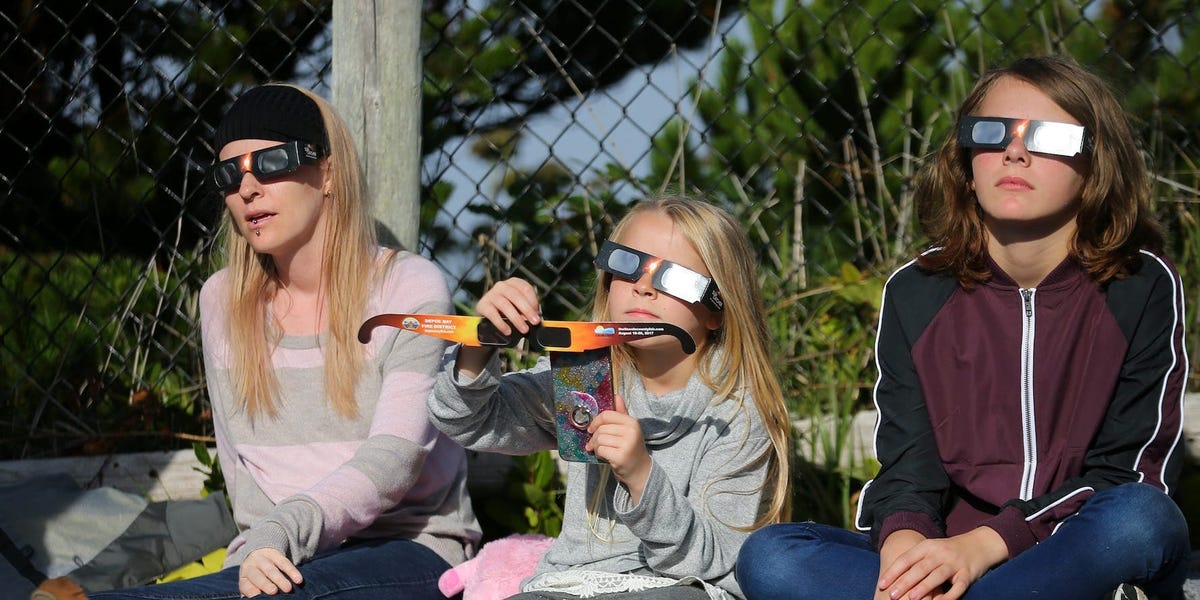It’s not safe to look at a solar eclipse without wearing certified protective glasses. If you did — or even if you did put on the right eyewear — you might be wondering whether your vision is OK.
Looking at the sun without adequate protection allows sunlight, including ultraviolet and near-infrared radiation, to penetrate the retina. That can damage cells and cause burns, leading to a condition eye doctors refer to as photic or solar retinopathy.
Some people might start to notice vision changes within a few hours, though it’s most likely they would become apparent by the next day, according to the American Academy of Ophthalmology.
Symptoms of solar retinopathy include dark spots, blurriness, difficulty telling colors apart, and loss of vision in the center of the eye, according to the National Eye Institute.
These changes can be temporary or permanent.
Sunglasses don’t adequately protect your eyes during an eclipse
Some people experience strange sensations with their eyes immediately after viewing the eclipse even when they wear protective glasses. If your glasses were certified and you wore them properly, the discomfort may be temporary.
Sometimes after looking through a filter, it can take the eyes’ photoreceptors awhile to adjust, which might cause an uncomfortable feeling, NPR said.
AP Photo/Andres Kudacki
People who watched the eclipse for even a brief period without protection, however, are susceptible to damage. UV radiation can also cause photokeratitis or “sunburned eyes.” Usually temporary, the condition causes pain and redness, and eyes may feel gritty or twitchy.
Sunglasses don’t provide adequate protection during an eclipse, David Hinkle, an ophthalmologist at Tulane University’s school of medicine, said.
Unlike sunglasses, eclipse glasses are so dark that you shouldn’t be able to see through them, he said in a statement. “They’re designed to filter out 99% or more of the light,” he said. “Anything that lets enough light in so that you can see through or walk around in would not be safe.”
If you are experiencing vision changes or eye pain, even if you wore proper eye protection, call an eye doctor to schedule an appointment.
Solar retinopathy may be a permanent condition
Many cases resolve themselves over time, within a day or even over a couple of weeks, a 2021 study published in the European Journal of Ophthalmology found. But if vision hasn’t come back within six months, it’s not likely to. Unfortunately, there’s no treatment for solar retinopathy.
A doctor can examine your eye and see changes to the retina, which can take on the appearance of the crescent-shaped sun responsible for the damage.
Sean Gallup/Getty Images
“I always, always say if you notice something strange about your vision, see the eye doctor,” Adriane Santa Croce, an ophthalmic sonographer at Scheie Eye Institute in Philadelphia, told Business Insider in 2017.
She added that “the concerns about vision following the eclipse may uncover unrelated eye problems that people may not have addressed otherwise,” including changes in vision related to diabetes, cataracts, macular degeneration, or glaucoma.




